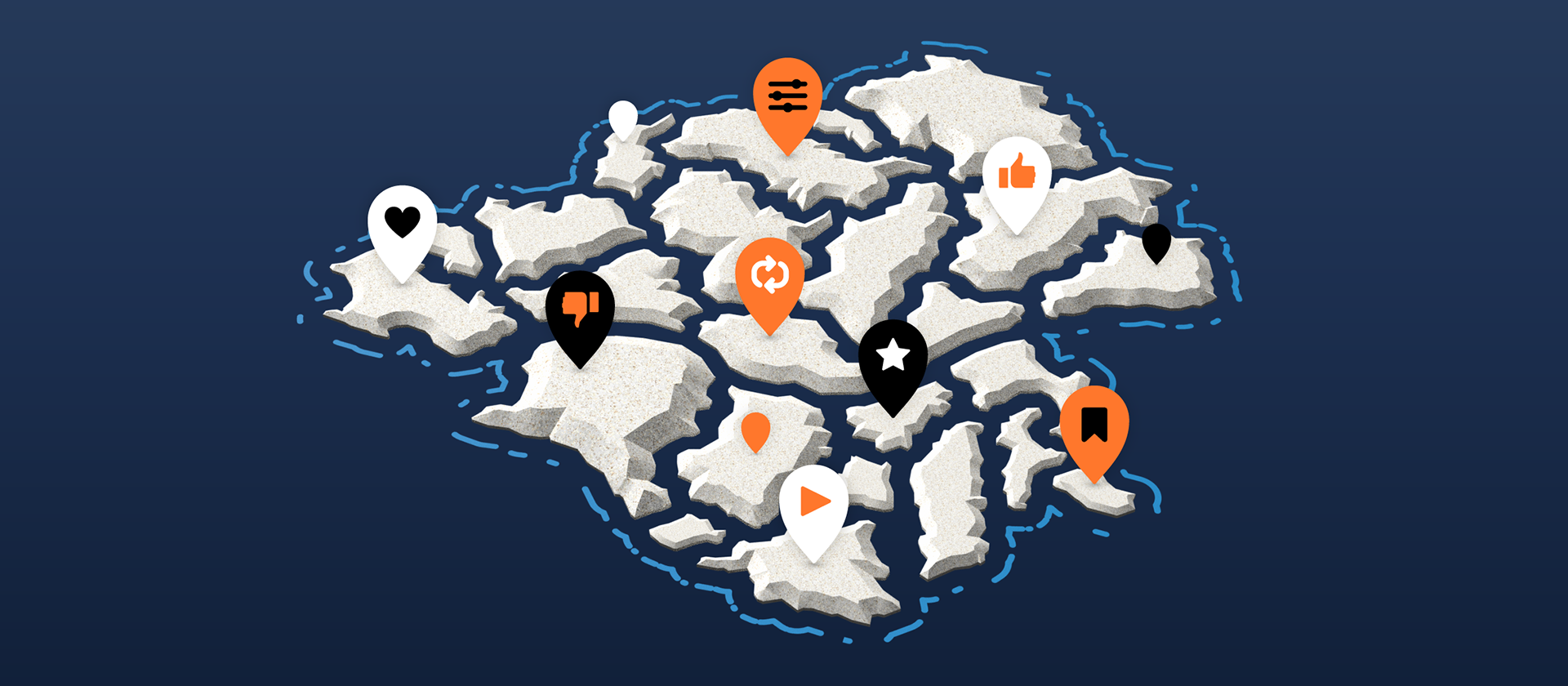
Building a resilient public communication
A season of futures to test the communication of the Loire-Atlantique Department
Developing a culture of anticipation and reflexivity within an organisation can be likened to sport training: it is a gradual journey, alternating between theory and practice, to strengthen its capacity to face the uncertainty and complexity that the future holds.
Faced with the many challenges ahead, the communication directorate of the French Department of Loire-Atlantique has experienced a “season of futures” with us. This exploration, which took place over eight months, was guided by four main objectives:
- Equipping itself with the means to anticipate changes in departmental communication rather than being subjected to them;
- Gradually adjusting actions and plans according to what may happen in the next 5 to 10 years;
- Ensuring that the organisation is ready to face future shocks;
- Collectively sharing a culture of anticipation.
To achieve this, the season of futures combined:
- A phase of scenario-building for the futures of communication and its relationship with citizens-residents-users, exploring a range of unexpected situations, opportunities, and controversies inspired by forward-looking research.
- The facilitation of four anticipation workshops that utilised these scenarios to stimulate reflection and imagination among the different teams of the Directorate.
- A phase of synthesising those contributions from the workshops to identify action pathways that could inform upcoming initiatives or strategic roadmaps.
Four themes and an equal number of design fiction scenarios shaped this season, which focused on the future:
- The Crickets of the public image: The local government employs intelligent earpieces, whispering to its staff and citizen-mercenaries, to safeguard its public image.
- The Department as a trusted third party for local information: The regional authority coordinates with local media for a joint fight against information fatigue.
- The Prism of Others: The communications service welcomes a new type of agent, responsible for giving a voice to the flora and fauna within public action.
- From 100 filters to no filter!: The Loire-Atlantique Department rejects the hyper-personalisation of online content, favouring a field-based approach to repair its fragmented society.
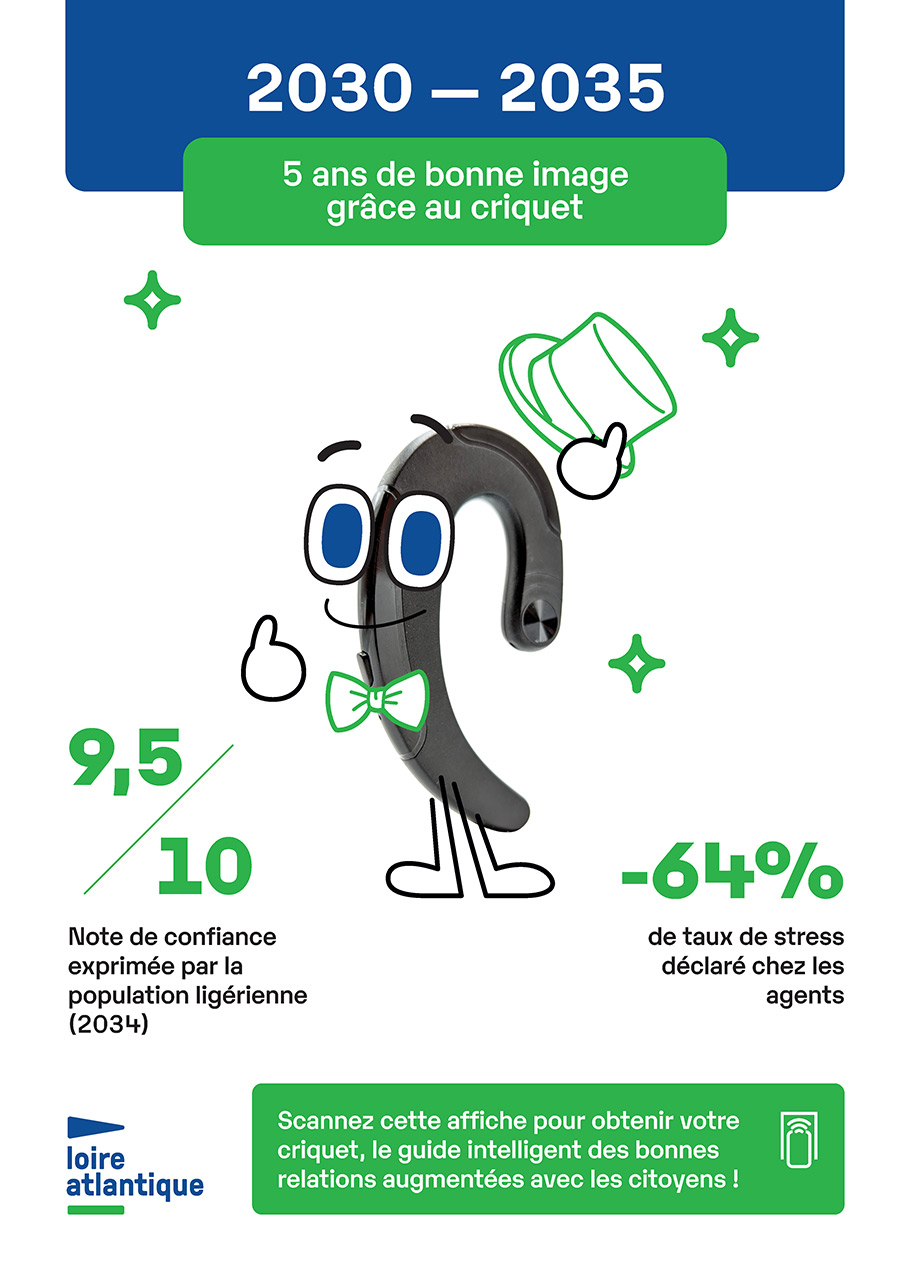
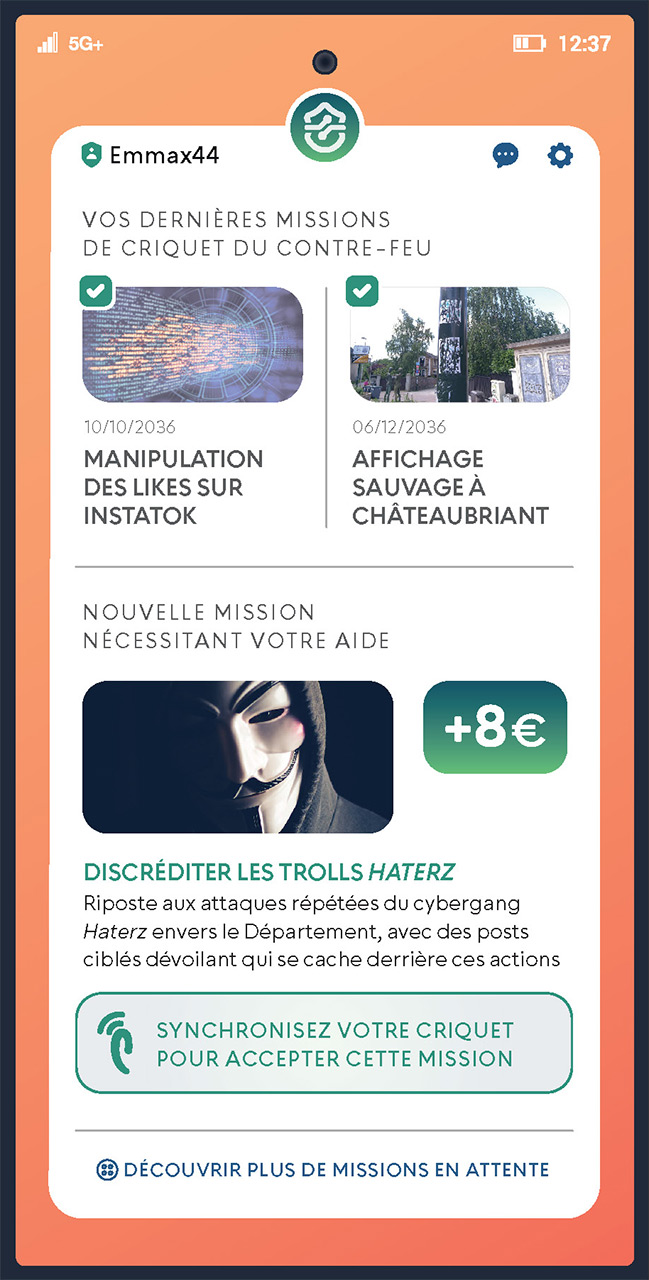
↑ Left: An internal communication poster for the local authority celebrating five years of success for the Crickets.
Right: The Citizen Crickets’ app, offering them missions in grey areas to protect the Department’s reputation at any (ethical) cost.
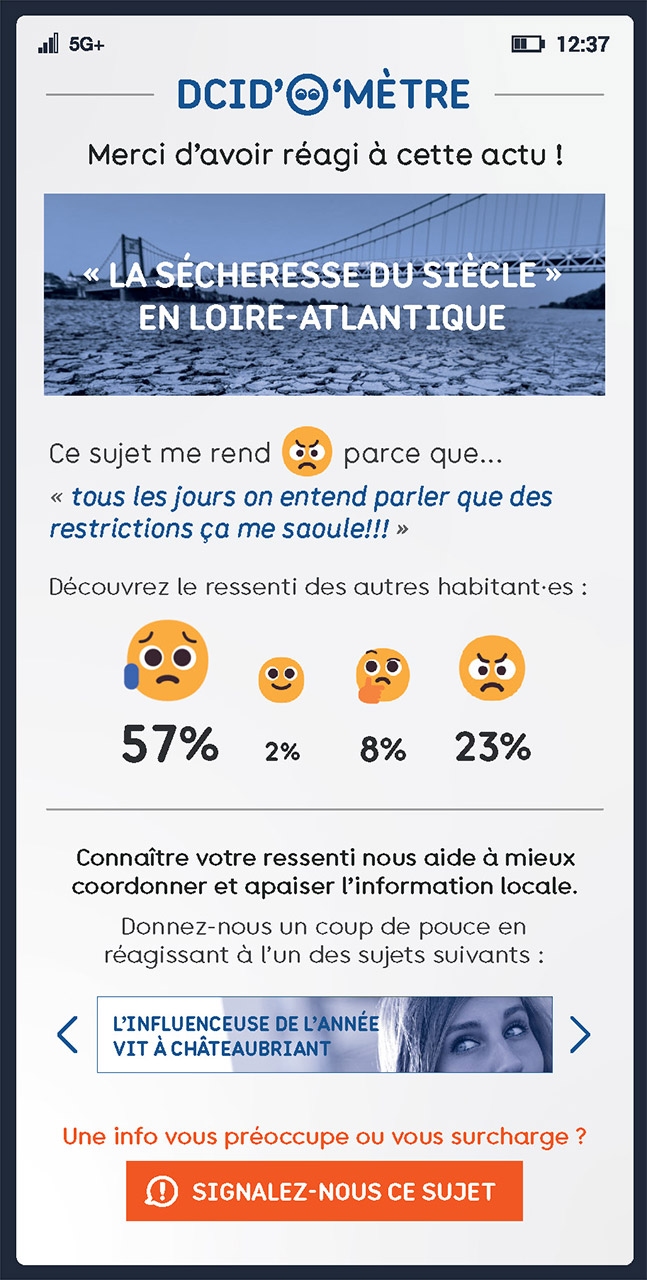
↑ The Dcid’o’mètre app, which captures inhabitants’ sentiments regarding local issues.

The Loire-Atlantique Department aims to be a sensor of the moods and expectations of residents, developing a detailed understanding of their relationship with the news in their area.
Like a lookout, the Directorate for the Coordination of Departmental Information (DCID) monitors changes in Loire-Atlantique and relays information to local media. The authority thus guides newsrooms towards topics to address or report on to ease tensions in the region; or, conversely, alerts them to angles that could exacerbate tensions within the population or increase distrust towards the media.
Excerpt from the scenario
The Department as a trusted third party for local information

Each scenario was debated and enriched during the workshops, allowing participants to imagine new challenges, professions, services, and tools that might emerge in this unique future. Throughout, participants identified what should – or should not – be retained from the explored situations.
At the end of the season, our studio synthesised the contributions from the workshops, identifying operational and strategic action pathways to start preparing today for tomorrow’s surprises. Among these were:
- The introduction of role-playing exercises, in a “red team” style, within the Directorate, to anticipate reputation attacks on the authority, exacerbated by automation (deepfakes, astroturfing, etc.);
- The use of non-human personae to design communication tools for users, taking into account the perspectives of local flora and fauna;
- Applying a “care-driven” approach to public information, aimed at reducing information fatigue;
- Co-constructing an ethical framework for the personalisation of public communication, whether it is based on AI or not.
These insights illuminated both the training needs of staff, potential evolutions in the editorial line, and the implementation of new information tools and communication processes. Steering clear of quick-fix and definitive solutions, the “season of futures” is intended to continuously inspire upcoming roadmaps and foster new discussions on the vision for the Loire-Atlantique Department’s communication strategy.
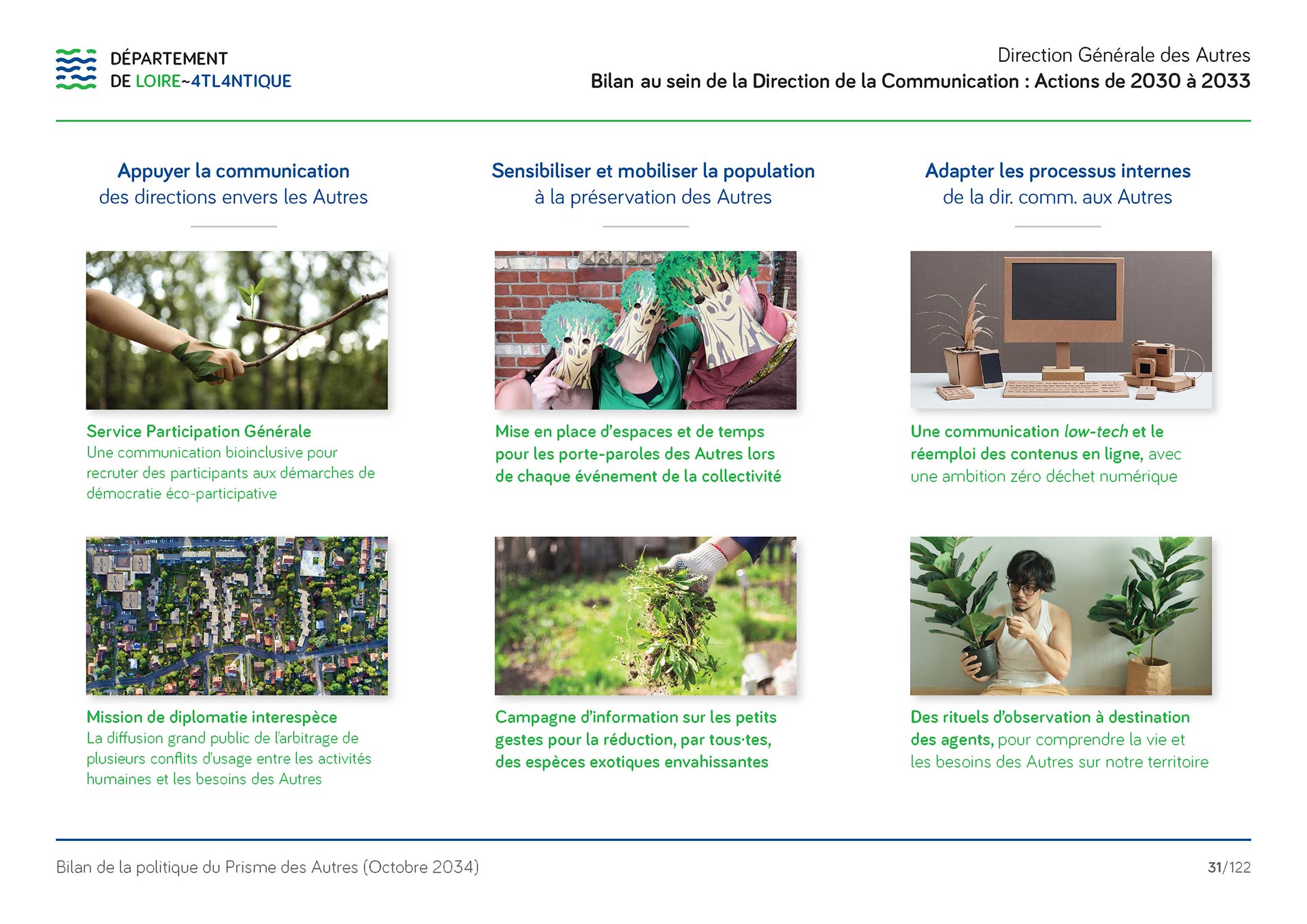
↑ The report from the Representative of the Others, outlining the main actions taken between 2030–2033 within the communications directorate.
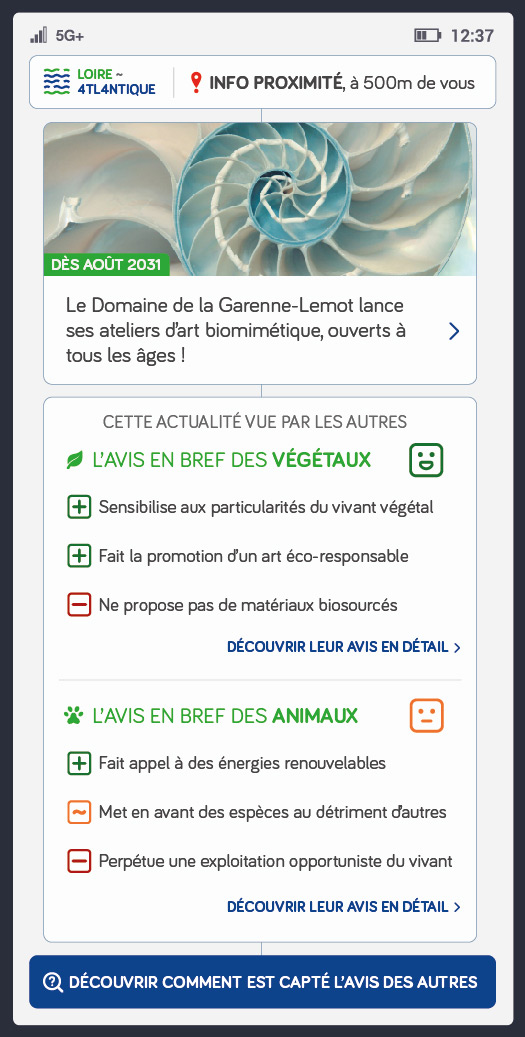
↑ An editorial presenting the perspective of local wildlife and flora on the regional government’s news.

A new editorial approach is emerging, one that includes the perspectives of plants and animals alongside those of humans. While this stance may seem absurd, the Loire-Atlantique Department’s consensus is undeniable: there will be no future generations in the Loire region if we do not take care of local ecosystems and biodiversity right now.
To meet this challenge, the Communications Service includes a representative from the Directorate-General of the Others which has been established to support this broader transformation of the Department. The mandate of the Representative of the Others is clear: raise awareness of the importance of the Others and represent their interests. Indeed, these Others have so far been the great forgotten of departmental communication.
Excerpt from the scenario
The Prism of Others

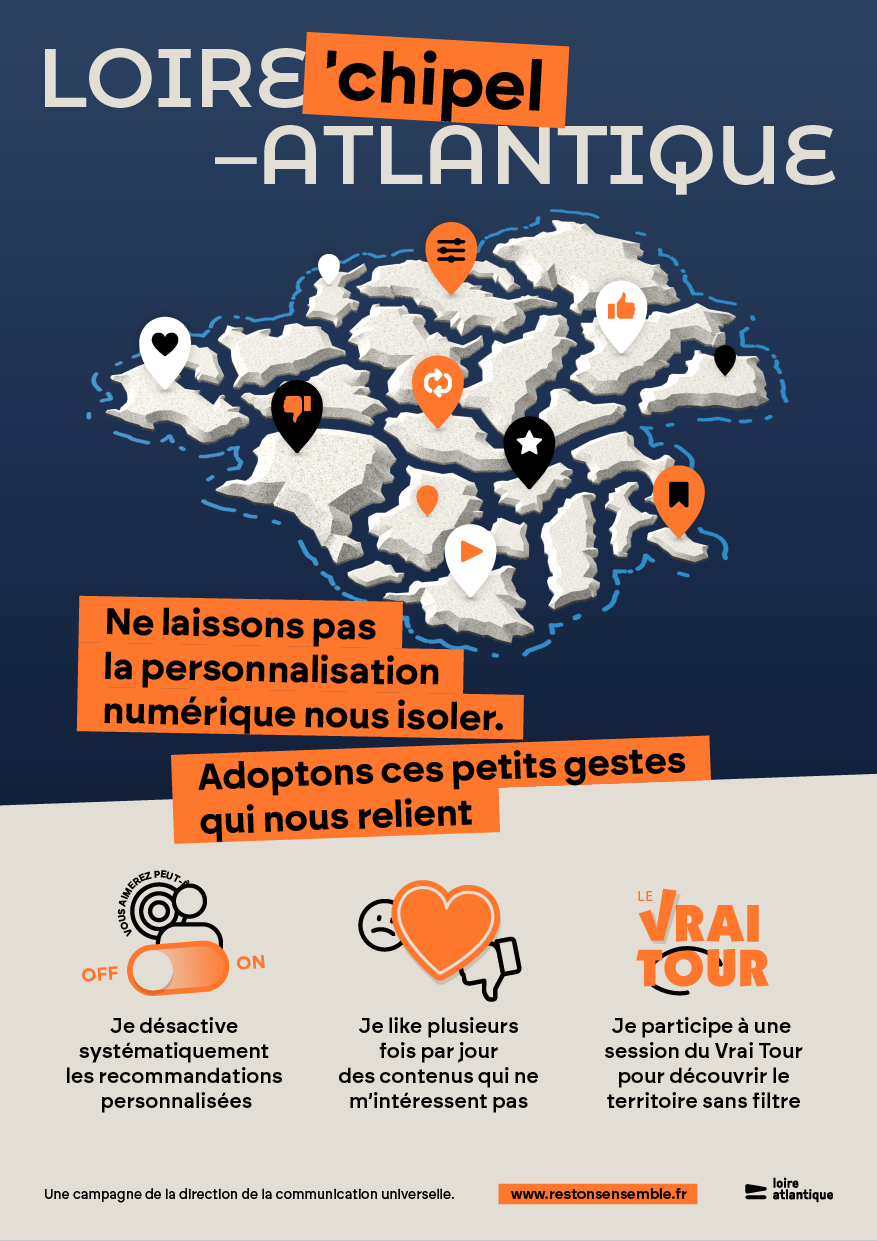
↑ The flyer for the Loire’chipel-Atlantique campaign, raising awareness among residents about the risks of hyper-personalisation and the habits to adopt to avoid it.
